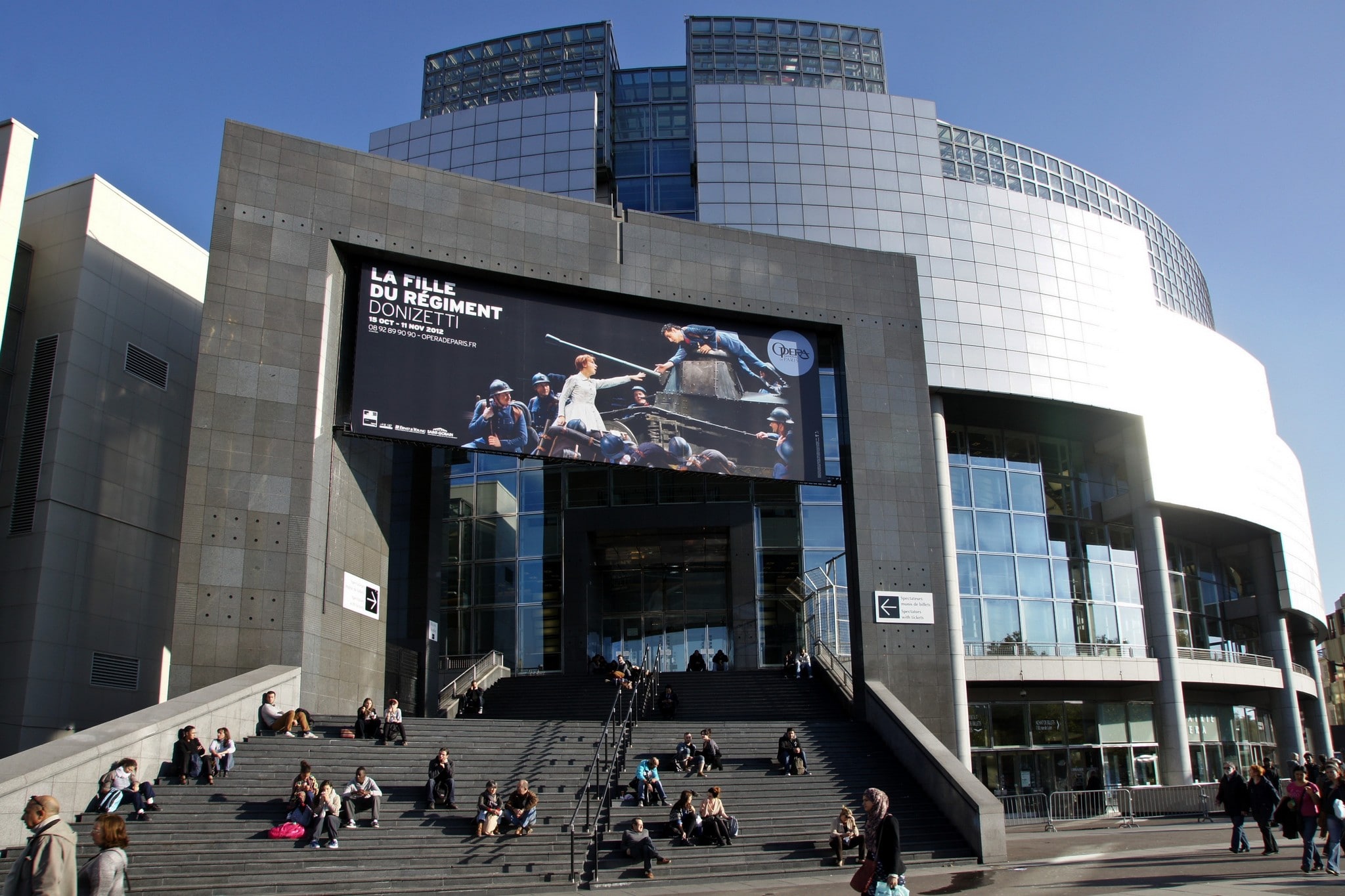Paris Opera: Strike enters second week
mainThey are putting on concert versions of operas at the premier house in France because one of several trade unions is in dispute over one pay grade in one part of the company.
Vive la France.


They are putting on concert versions of operas at the premier house in France because one of several trade unions is in dispute over one pay grade in one part of the company.
Vive la France.

Statement by the Berlin Phil: It is with…

We hear that Andrew recently recorded for Chandos…

Don’t say you haven’t dreamed of this. The…

Decca is marking the birth centenary of John…

Session expired
Please log in again. The login page will open in a new tab. After logging in you can close it and return to this page.
The Broadway revival of the musical The Pajama Game, a comedy about union activity in a small garment factory in the United States in the 1950s ended last year after a run of less than two months (it may have even been less than a month).
In the United States, outside of the public sector and non profits that receive a lot of government money, like orchestras, no factory, unless it is part of a huge conglomerate, is unionized, and so the audience could not relate.
I’m sorry that the upper middle class Parisians are inconvenienced but Paris is an expensive city and these workers need to feed their families. I’m glad that unions still have some clout in Europe.
+1
The amount of money spent on welfare and support in France is STAGGERING and insupportable. And they have militant unionism (particularly in the agricultural sector) which is strangling their country. On top of that they’ve taken on much of the world’s ‘surplus to requirements’ people. It’s end game for them. The price of out-of-control compassion and zero common sense.
There is no such thing as out of control compassion, Sue.
Right now I am spending a lot of money helping a young mother with multiple needs, who has fallen through the cracks of the shredded US welfare system. If it were not for me her baby would be taken from her and probably eventually placed for adoption although this woman is a great Mom.
Forty years ago what I am doing would not be necessary because the US had a welfare system that was more compassionate. Government has an obligation to people who cannot manage, for whatever the reason, in the private economy.
You never know when you yourself, might become disabled or fall upon hard times and need the help. Many, perhaps, most people even in developed countries, if they lost six months of income, would fall into poverty
I am so sorry you feel this way. I actually lived in France for 15 years working in opera houses and continued going back to work there regularly for a further 12 years. I have seen the French unions in action and have to say they do a great job in protecting the rights of workers.
They reflect a wide approach – CFDT, CFTC, Snam – CGT all coming from a different political perspective for example.
There is no doubt that the French musical, theatrical and operatic world might have been impoverished by successive governments if they didn’t have unions that spoke up when faced with impossible cuts.
We always have to be careful of the ‘ throwing the baby out with the bathwater’ mentality of some politicians. Frankly not every politician likes or respects music , theatre or art.
France’s cultural heritage is so rich – a magnet also to the international tourist trade- but it needs adequate support to function and that includes the approach to staffing budgets. Why should people not protest for a wage increase that keeps pace with living in an expensive city like Paris?
I have never heard of ‘surplus to requirements people’ and it seems a bizarre term to apply to other human beings.
Yes, the agricultural unions are tough, but the sector flourishes and brings wealth to France, far from strangling it. When they strike and block the roads it can be a pain , but there are perhaps many agricultural workers in other countries who wish their unions were similarly strong and could achieve results .
Finally as you mentioned the welfare budget- about 18 or so years ago an additional social charge was placed on all salaries to help with the social security deficit.
It was explained at the time that one major cause of the problem was certain treatments i.e. Spa health ‘ cures ‘ which had been completely reimbursed by the state up until then and were costly.
Your average worker in France did not have the money to pay for the initial outlay for one of these cures ( even if it would be reimbursed later) – it was very much the domain of the better off- however , everybody paid the charge to help reduce the debt! Food for thought.
People who receive social benefits actually benefit the economy because they can spend more which creates employment and workers pay taxes. I realize that I am simplifying but more in general more government spending creates more employment all around
I think this is true.
If one of the unions went on strike in our concert hall (I’m in the US), the rest of the unionized workforce would honor the picket line and shut the whole place down. I wonder why that isn’t happening in Paris.
In brief and as I understand it (I’m not a labour law expert), sympathy/solidarity strikes are generally illegal under French law, unless special circumstances apply (mostly widespread or thoroughly interconnected economic interests/impacts for the different unions’ members).
In the case of the “Paris Opera strike”, it exclusively pertains to technical staff who are members of one of the unions, ‘Syndicat Sud’ (about 40 people total, of which not all are participating in the strike at that). Additionally, the Opéra Bastille half of the Paris Opera is the only side affected; Palais Garnier, which also falls under the Paris Opera umbrella and where mostly ballet performances take place, remains unaffected.
Taking into account those facts, the scope of said union and its labour action is insufficient for the other unions representing the remaining Paris Opera employees to enter into solidarity action without facing legal repercussions.
Different from how things work here in the US. Thanks for the clarification.